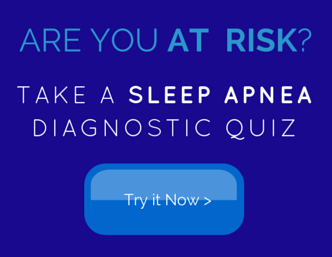Get Tested for Sleep Apnea with Convenient Home Sleep Study in Philadelphia
Until recently, getting diagnosed with sleep apnea required an overnight visit at a sleep lab in order to be observed and evaluated. For many people, this method of testing proved inconvenient and bothersome – not to mention uncomfortable – and it certainly did not increase the appeal of seeking a diagnosis for sleep apnea, no matter how severe your symptoms.
Fortunately, patients with suspected sleep apnea now have a more convenient option that allows them to be tested from the comfort of their own bed. With a home sleep study offered by eos dental sleep in Philadelphia, you can get diagnosed without having to rearrange your day or sleeping environment.
Here's an overview of what sleep testing is, what a home sleep study involves and a look at some reasons why patients like it better than in-lab testing.
What is sleep testing?

What can I expect during a home sleep study?
The doctor at eos dental sleep will evaluate you first to determine whether you exhibit signs of having sleep apnea. If you regularly snore, feel overly tired during the day or show other sleep apnea related symptoms, then you may be a candidate for a home sleep study.
For your home sleep study, you'll receive a device with instructions and all you have to do is follow those simple instructions before you go to bed. The compact device will be worn around your head like a headband, collecting important data while you sleep comfortably. After your test, you'll return the device to the sleep specialist at eos dental sleep who will be able to have your results interpreted and make a diagnosis.
Why a Home Sleep Study Is Better
Simply put, you can't beat the convenience and comfort of sleeping in your own bed. If you truly want to see what is happening during sleep, you want the test to be done in conditions that match your usual sleeping environment. In addition to the convenience factor, home sleep tests are also typically less expensive than traditional, in-lab polysomnograms, meaning that both insurance companies and patients will likely save some money on expenses and out of pocket costs. What's more, home sleep studies also mean parents don't have to worry about securing child care for a night spent away from home and there is virtually no impact on your regular work schedule or work commute.
Cases Where In-Lab Testing Is Recommended
If your home sleep study turns out negative despite having ongoing symptoms of sleep apnea or if there's a chance you have more than one sleep disorder occurring at once, then a sleep study at a lab may be necessary. The at-home polysomnogram is used only for verifying potential sleep apnea cases and it won't diagnose other issues like restless legs syndrome. If you have other health problems such as lung disease, you may have to complete an in-lab test because doctors will want to monitor you to ensure the other conditions won't cause problems while you take the test.
Looking for home sleep study in Philadelphia?
If you have signs of sleep apnea, schedule a consultation to see the snoring and sleep apnea specialist at eos dental sleep today. A quick consultation may be all it takes in order to set up a home sleep study. We have a centrally-located office in Center City, Philadelphia so you can access the top-notch diagnostic evaluation and effective treatment you need for your sleep apnea condition.
Not sure whether you are exhibiting signs of sleep apnea? Take our sleep apnea diagnostic quiz to see whether you’re at risk.

